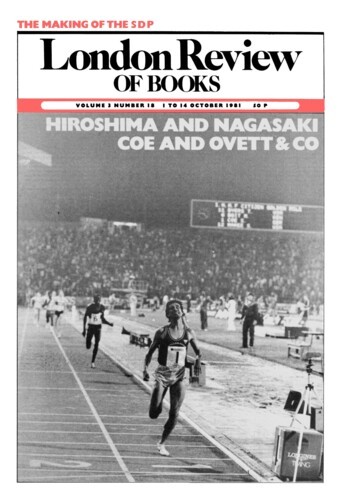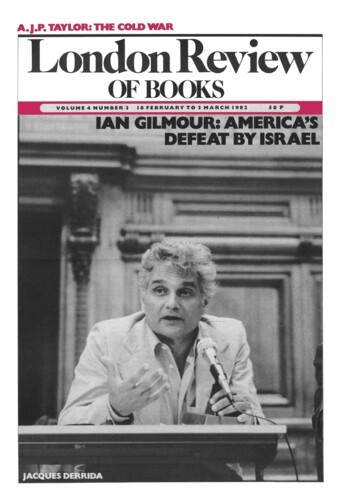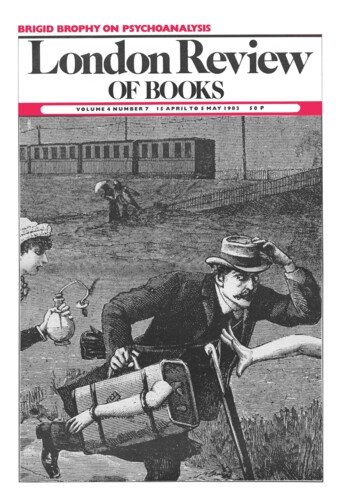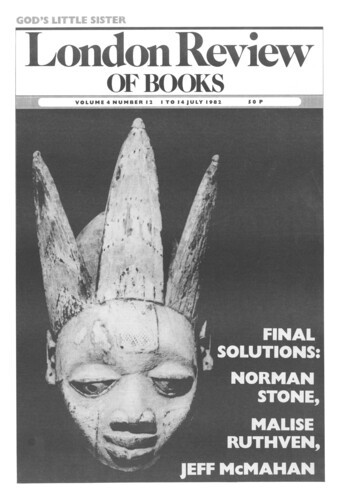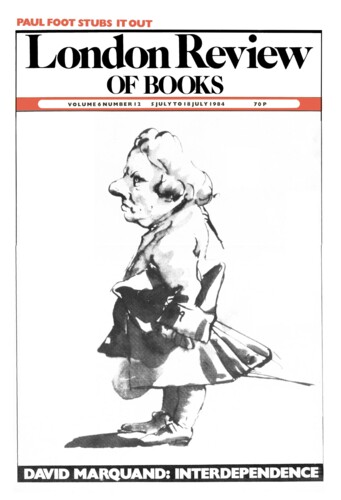The ‘London Review of Books’ started with an interest in the Social Democrats, in the days before the party was launched.
David Marquand, 1 October 1981
The pregnancy was long, difficult and ridden with anxiety, but the birth was easy and infancy has been a triumph. Unfortunately, however, Mr Bradley’s instant history of the first few months of the Social Democratic Party tells us a good deal more about its gestation before the launch on 26 March than about its development since. This was inevitable, no doubt. Even instant historians have to get their books printed; and Mr Bradley’s would not be in the bookshops yet if he had dealt with the final stages of his story in as much detail as the earlier ones. All the same, the effect is curiously lop-sided: lop-sided, moreover, in a way which obscures much of the real significance of the events which Mr Bradley has set out to analyse.
